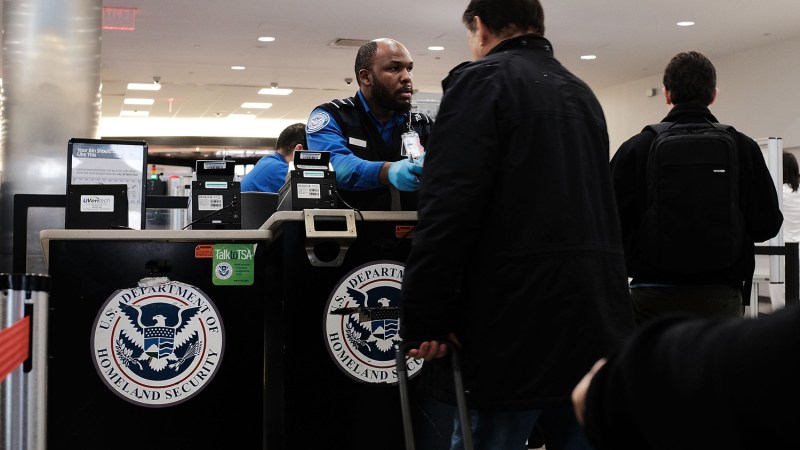When I’m getting ready for a trip, I spend some time thinking about what I’m going to bring, but I don’t think much about what’s in my toiletry kit. Packing that seems like a no-brainer — hairbrush, deodorant, toothbrush. But what if you use an electric toothbrush instead of a manual toothbrush? Often, people don’t consider if you can take an eclectic toothbrush on a plane until it comes time to pack. Unlike packing a traditional toothbrush, travelers must follow certain rules when traveling with an electric toothbrush.
Let us help you make packing easy with the simple answers to the questions you want to know, such as, “Can you bring an electric toothbrush on a plane?”
Can you bring an electric toothbrush on a plane?

The short answer to this question is yes — you can take an electric toothbrush on a plane. However, there are some rules and restrictions to be aware of if you wish to bring along your electric toothbrush. According to the TSA, any lithium metal or lithium-ion battery device should be placed in carry-on bags. This rule is because these types of batteries, if damaged, could potentially overheat and pose a safety issue.
This TSA rule is why you might have experienced your airline attendant asking you if you have any of these batteries while checking a bag. Other common lithium or lithium-ion batteries include e-cigarettes, cell phones, tablets, laptops, chargers, and vaping devices.
If you’re not traveling with a carry-on bag, you can still travel within the U.S. with an electric toothbrush in your checked luggage. However, you’ll need to tell the bag check-in attendant so they are aware. Rules for international flights may vary, so always check with your airline carrier before traveling. If you’re unsure about your airline’s rules on your travel day, we recommend traveling with a manual toothbrush to play it safe.
Understanding batteries in electric toothbrushes

Some electric toothbrushes have a lithium battery, but many do not. Most of today’s rechargeable electric toothbrushes contain lithium batteries, such as Philips Sonicare and Oral-B electric toothbrushes. Electric toothbrushes that contain regular, removable batteries, such as the SpinBrush, can be placed in either your carry-on or checked luggage.
Getting through security with an electric toothbrush

When packing your electronic toothbrush in your carry-on luggage, be sure to place it toward the top if security agents ask you to remove it from the bag. Many airports have different technology and x-ray systems for security, some requiring removing any items with lithium or lithium-ion batteries.
This is why many security agents will ask you to remove your cell phone, headphones, laptop, etc., and place these items in a special tray. Keeping your electronic toothbrush easily accessible will help make it easier to avoid rummaging through your bag (and being that person who holds up the airport security line).
What else can I bring on the plane?

Besides your electric toothbrush, there are some other essentials that you may have to check to see if they are allowed to be carried on a plane, or if they will be restricted to your checked luggage.
The TSA has an extensive list on its website. Here are a few things that the TSA says you can bring on a plane.
- Electronic cigarettes and vaping devices: According to the TSA, those can travel in carry-on luggage as long as they can’t be accidentally turned on during the flight. The TSA bans these items from checked luggage.
- Hair dryers are allowed in both checked and carry-on luggage.
- CPAP machines are allowed in checked luggage and carry-ons, though it’s generally not recommended to pack them in checked luggage.
- Medical thermometer with mercury: The TSA does not allow mercury thermometers to be carried aboard a plane, but they are allowed in checked luggage as long as it’s in a protective case. All other non-mercury thermometers, including electronic thermometers, are not restricted.




